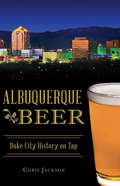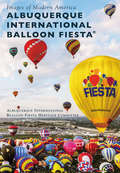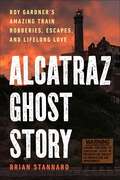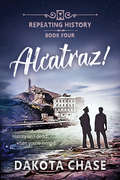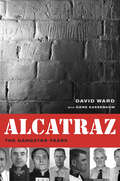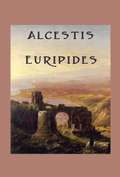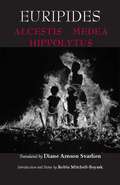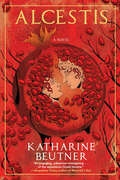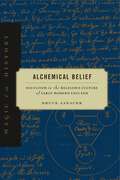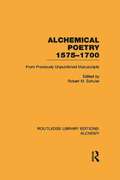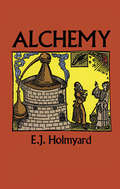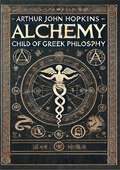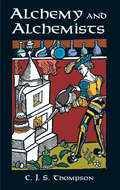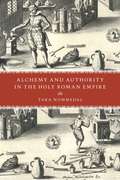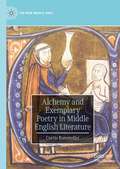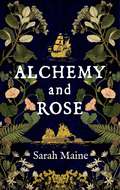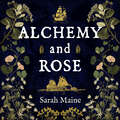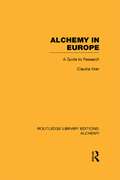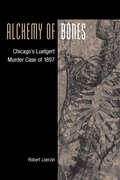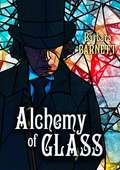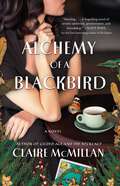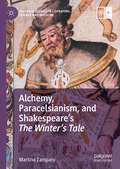- Table View
- List View
Albuquerque Beer: Duke City History on Tap (American Palate)
by Chris JacksonAlbuquerque’s commercial brewing scene dates back to 1888, when the Southwestern Brewery & Ice Company was launched. It later churned out thirty thousand barrels of beer per year and distributed throughout the region. Nearly thirty years later, Prohibition halted brewing save for a brief comeback in the late 1930s. In 1993, the modern era emerged with a handful of breweries opening across the city. However, Marble Brewery’s 2008 opening revived Albuquerque’s dormant craft beer scene. Since its opening, the city has welcomed dozens of breweries, brewpubs and taprooms. Writer Chris Jackson recounts the hoppy history of brewing in the Duke City.
Albuquerque International Balloon Fiesta® (Images of Modern America)
by Albuquerque International Balloon Fiesta Heritage CommitteeFrom its humble beginning in 1972 when 13 hot-air balloons ascended from an Albuquerque shopping center parking lot to a stunning annual gathering of 500-plus aeronauts, the Albuquerque International Balloon Fiesta lives on as the most-photographed air show on the planet. As you page through this book, imagine yourself going along for the ride and soaring to new heights. Or if you prefer to keep your feet on the ground, imagine yourself strolling among hundreds of swaying giants, seemingly lost in a dizzying kaleidoscope of color. Join in the camaraderie that draws pilots and fans to Albuquerque from all over the world. You will find yourself mesmerized by the Balloon Fiesta’s signature events and its spirited competition among hot-air balloon pilots. As an added attraction, step back in time to when hydrogen-gas balloons once graced Albuquerque skies and enjoy the fascinating world of silent flight, the America’s Challenge Gas Balloon Race.
Alcatraz Ghost Story: Roy Gardner's Amazing Train Robberies, Escapes, and Lifelong Love
by Brian StannardThe Incredible True Story of the Most Hunted Man in Pacific Coast History––and the Woman He Loved Before the 1920s found their roar, a charismatic gambling addict named Roy Gardner dominated news headlines with daring train robberies and escapes from incarceration. Nicknamed "the Smiling Bandit," Gardner spilled no blood––except his own––as he cut a felonious path across the western United States, as the country hobbled through a recession in the aftermath of the First World War. Once imprisoned for the long term in federal prisons, including Alcatraz, the most notorious prison's second-most-notorious inmate won over some unlikely champions. Both Gardner's wife, Dollie, and a police officer who once arrested him launched extensive campaigns for Gardner's release on the vaudeville circuit, claiming a brain operation would cure his lawless ways. Was Gardner a good man who made bad decisions as the victim of injury and circumstance? Or was his charming personality merely the poker face of a scoundrel? Richly researched, drawing on contemporary newspaper accounts, Alcatraz Ghost Story explores the life of Roy Gardner in the context of his great love story and the larger backdrop of drug addiction, incarceration, and the racial and labor violence of the 1920s and 1930s.
Alcatraz! (Repeating History #4)
by Dakota ChaseRepeating History: Book FourIn their further efforts to recover the historical artifacts lost when they set fire to Merlin’s office, Ash and Grant go back to the early 1930s, where they must infiltrate Alcatraz Prison and secure a locket belonging to Al Capone. They find themselves at odds when Ash plays the role of a prisoner, while Grant is a guard. Capone takes a liking to Ash, whom he sees as a younger version of himself, and places Ash under his protection. Before they can return to their own time, the boys must help foil an escape from the Rock, expose a corrupt and dangerous guard, and secure the pendant.
Alcatraz: History and Design of a Landmark
by Ira Nadel Donald MacDonaldThis illustrated volume by the authors of Golden Gate Bridge explores the history and design of San Francisco’s infamous island prison.Award-winning architect Donald MacDonald and acclaimed author Ira Nadel present the first complete history of Alcatraz told through its architecture. In friendly illustrations and accessible text, Alcatraz reveal the design decisions that have shaped the island from its first brick and masonry fortress to the infamous concrete cellblock, to the landscape design of its contemporary gardens and bird sanctuaries.Packed with intriguing facts throughout, this little treasure allows an unprecedented glimpse into the life of the island. It is an entertaining look at one of the nation’s most visited destinations.
Alcatraz: The Gangster Years
by David A. WardAl Capone, George "Machine Gun" Kelly, Alvin Karpis, "Dock" Barker—these were just a few of the legendary "public enemies" for whom America's first supermax prison was created. In Alcatraz: The Gangster Years, David Ward brings their stories to life, along with vivid accounts of the lives of other infamous criminals who passed through the penitentiary from 1934 to 1948. Ward, who enjoyed unprecedented access to FBI, Federal Bureau of Prisons, and Federal Parole records, conducted interviews with one hundred former Alcatraz convicts, guards, and administrators to produce this definitive history of "The Rock." Alcatraz is the only book with authoritative answers to questions that have swirled about the prison: How did prisoners cope psychologically with the harsh regime? What provoked the protests and strikes? How did security flaws lead to the sensational escape attempts? And what happened when these "habitual, incorrigible" convicts were finally released? By shining a light on the most famous prison in the world, Ward also raises timely questions about today's supermax prisons.
Alcestis
by Euripides"The Alcestis would hardly confirm its author's right to be acclaimed 'the most tragic of the poets.' It is doubtful whether one can call it a tragedy at all. Yet it remains one of the most characteristic and delightful of Euripidean dramas, as well as, by modern standards, the most easily actable. And I notice that many judges who display nothing but a fierce satisfaction in sending other plays of that author to the block or the treadmill, show a certain human weakness in sentencing the gentle daughter of Pelias." So begins the introduction to the Alcestis by Euripides.
Alcestis, Medea, Hippolytus
by Euripides Diane Arnson Svarlien Robin Mitchell-BoyaskThis new volume of three of Euripides' most celebrated plays offers graceful, economical, metrical translations that convey the wide range of effects of the playwright's verse, from the idiomatic speech of its dialogue to the high formality of its choral odes.
Alcestis: A Novel
by Katharine BeutnerIn Greek myth, Alcestis is known as the ideal wife; she loved her husband so much that she died and went to the underworld in his place. In this vividly-imagined debut, Katharine Beutner gives voice to the woman behind the ideal and reveals the part of the story that's never been told: What happened to Alcestis in the three days she spent in the underworld?
Alchemical Belief: Occultism in the Religious Culture of Early Modern England (Magic in History)
by Bruce JanacekWhat did it mean to believe in alchemy in early modern England? In this book, Bruce Janacek considers alchemical beliefs in the context of the writings of Thomas Tymme, Robert Fludd, Francis Bacon, Sir Kenelm Digby, and Elias Ashmole. Rather than examine alchemy from a scientific or medical perspective, Janacek presents it as integrated into the broader political, philosophical, and religious upheavals of the first half of the seventeenth century, arguing that the interest of these elite figures in alchemy was part of an understanding that supported their national—and in some cases royalist—loyalty and theological orthodoxy. Janacek investigates how and why individuals who supported or were actually placed at the traditional center of power in England’s church and state believed in the relevance of alchemy at a time when their society, their government, their careers, and, in some cases, their very lives were at stake.
Alchemical Belief: Occultism in the Religious Culture of Early Modern England (Magic in History)
by Bruce JanacekWhat did it mean to believe in alchemy in early modern England? In this book, Bruce Janacek considers alchemical beliefs in the context of the writings of Thomas Tymme, Robert Fludd, Francis Bacon, Sir Kenelm Digby, and Elias Ashmole. Rather than examine alchemy from a scientific or medical perspective, Janacek presents it as integrated into the broader political, philosophical, and religious upheavals of the first half of the seventeenth century, arguing that the interest of these elite figures in alchemy was part of an understanding that supported their national—and in some cases royalist—loyalty and theological orthodoxy. Janacek investigates how and why individuals who supported or were actually placed at the traditional center of power in England’s church and state believed in the relevance of alchemy at a time when their society, their government, their careers, and, in some cases, their very lives were at stake.
Alchemical Poetry, 1575-1700: From Previously Unpublished Manuscripts (Routledge Library Editions: Alchemy #Vol. 5)
by Robert M. SchulerOf interest to interdisciplinary historians as well as those in various other fields, this book presents the first publication of 14 poems ranging from 12 to 3,000 lines. The poems are printed in the chronological order of their composition, from Elizabethan to Augustan times, but nine of them are verse translations of works from earlier periods in the development of alchemy. Each has a textual and historical introduction and explanatory note by the Editor. Renaissance alchemy is acknowledged as an important element in the histories of early modern science and medicine. This book emphasises these poems’ expression of and shaping influence on religious, social and political values and institutions of their time too and is a useful reference work with much to offer for cultural studies and literary studies as well as science and history.
Alchemy (Dover Books on Engineering)
by E. J. HolmyardAlchemy is thought to have originated over 2000 years ago in Hellenic Egypt, the result of three converging streams: Greek philosophy, Egyptian technology and the mysticism of Middle Eastern religions. Its heyday was from about 800 A.D. to the middle of the seventeenth century, and its practitioners ranged from kings, popes, and emperors to minor clergy, parish clerks, smiths, dyers, and tinkers. Even such accomplished men as Roger Bacon, Thomas Aquinas, Sir Thomas Browne and Isaac Newton took an interest in alchemical matters.In its search for the "Philosopher's Stone" that would transmute base metals into silver and gold, alchemy took on many philosophical, religious and mystical overtones. These and many other facets of alchemy are explored with enormous insight and erudition in this classic work. E. J. Holmyard, a noted scholar in the field, begins with the alchemists of ancient Greece and China and goes on to discuss alchemical apparatus, Islamic and early Western alchemy; signs, symbols, and secret terms; Paracelsus; English, Scottish and French alchemists; Helvetius, Price, and Semler, and much more.Ranging over two millennia of alchemical history, Mr. Holmyard shows how, like astrology and witchcraft, alchemy was an integral part of the pre-scientific moral order, arousing the cupidity of princes, the blind fear of mobs and the intellectual curiosity of learned men. Eventually, however, with the advent and ascension of the scientific method, the hopes and ideas of the alchemists faded to the status of "pseudo-science." That transformation, as well as alchemy's undeniable role as a precursor of modern chemistry, are brilliantly illuminated in this book. Students of alchemy, chemistry, the history of science, and the occult, plus anyone interested in the origin and evolution of one of mankind's most enduring and influential myths, will want to have a copy of this masterly study.
Alchemy Child of Greek Philosophy
by Arthur John HopkinsAlchemy Child of Greek Philosophy by Arthur John Hopkins is an illuminating exploration of the ancient practice of alchemy, tracing its philosophical roots back to the intellectual traditions of ancient Greece. This scholarly work delves into the intricate connections between Greek philosophical thought and the mystical, transformative art of alchemy, offering readers a deep understanding of how these two domains influenced and shaped one another.Hopkins, a distinguished scholar, meticulously examines the evolution of alchemical thought, demonstrating how the early Greek philosophers, such as Thales, Heraclitus, and Plato, laid the groundwork for the principles and practices that would later define alchemy. Through a comprehensive analysis of historical texts, philosophical doctrines, and alchemical writings, he unveils the profound ways in which Greek philosophy provided the conceptual framework for alchemical theory and experimentation.The book delves into key concepts such as the four elements, the notion of prima materia, and the process of transmutation, illustrating how these ideas were adapted and expanded upon by alchemists throughout history. Hopkins also explores the symbolic and metaphorical language of alchemy, shedding light on the allegorical representations and mystical interpretations that characterized this enigmatic discipline.Alchemy Child of Greek Philosophy is not just a historical study; it is also a philosophical inquiry that invites readers to reflect on the nature of knowledge, transformation, and the quest for understanding the mysteries of the universe. Hopkins' engaging prose and thorough research make this book an essential read for anyone interested in the history of science, philosophy, and the esoteric traditions that have shaped human thought.This work stands as a testament to the enduring legacy of Greek philosophy and its profound impact on the development of alchemy. Hopkins' insightful analysis and captivating narrative provide a rich and nuanced perspective on the symbiotic relationship between these two fields, making Alchemy Child of Greek Philosophy a valuable addition to the libraries of scholars, historians, and curious minds alike.
Alchemy and Alchemists
by C. J. ThompsonAlchemy, whose beginnings — possibly in Egypt, Babylon, India, or China — are ancient and obscure, remained undocumented until about 2500 BC. Although it may have originated with metallurgy, the practice rapidly developed an association with magic, pharmacy, and astrology. In this richly illustrated and amply researched study, a noted expert traces the long history of alchemy, from its murky start to modern times. Hermes Trismegistus and other famous alchemists appear here, along with discussions of the craft's associations with chicanery (as memorably portrayed in Ben Jonson's 1610 comedy, The Alchemist), and its role in the secret society of Rosicrucians. Additional topics include the alchemist's laboratory and equipment, alchemical symbols and secret alphabets, noteworthy manuscripts, the influence of astrology, and more. Although regarded today as a pseudoscience, alchemy gave rise to scientific chemistry. This volume illustrates the ways in which efforts to transmute metals — such as the search for the ever-elusive philosopher's stone — stimulated experimentation with hitherto untried substances, leading to improved knowledge of the materials vital to applied chemistry. Anyone intrigued by the origins and practices of this age-old and still-mysterious discipline, as well as those interested in the history of chemistry, will appreciate this concise, authoritative study.
Alchemy and Authority in the Holy Roman Empire (National Society For The Study Of Education Yearbooks Ser.)
by Tara NummedalWhat distinguished the true alchemist from the fraud? This question animated the lives and labors of the common men—and occasionally women—who made a living as alchemists in the sixteenth- and seventeenth-century Holy Roman Empire. As purveyors of practical techniques, inventions, and cures, these entrepreneurs were prized by princely patrons, who relied upon alchemists to bolster their political fortunes. At the same time, satirists, artists, and other commentators used the figure of the alchemist as a symbol for Europe’s social and economic ills. Drawing on criminal trial records, contracts, laboratory inventories, satires, and vernacular alchemical treatises, Alchemy and Authority in the Holy Roman Empire situates the everyday alchemists, largely invisible to modern scholars until now, at the center of the development of early modern science and commerce. Reconstructing the workaday world of entrepreneurial alchemists, Tara Nummedal shows how allegations of fraud shaped their practices and prospects. These debates not only reveal enormously diverse understandings of what the “real” alchemy was and who could practice it; they also connect a set of little-known practitioners to the largest questions about commerce, trust, and intellectual authority in early modern Europe.
Alchemy and Exemplary Poetry in Middle English Literature (The New Middle Ages)
by Curtis RunstedlerThis book explores the different functions and metaphorical concepts of alchemy in fourteenth- and fifteenth-century Middle English poetry and bridges them together with the exempla tradition in late medieval English literature. Such poetic narratives function as exemplary models which directly address the ambiguity of medieval English alchemical practice. This book examines the foundation of this relationship between alchemical narrative and exemplum in the poetry of Gower and Chaucer in the fourteenth century before exploring its diffusion in lesser-known anonymous poems and recipes in the fifteenth century, namely alchemical dialogues between Morienus and Merlin, Albertus Magnus and the Queen of Elves, and an alchemical version of John Lydgate’s poem The Churl and the Bird. It investigates how this exemplarity can be read as inherent to understanding poetic narratives containing alchemy, as well as enabling the reader to reassess the understanding and expectations of science and narrative within medieval English poetry.
Alchemy and Rose: A sweeping new novel from the author of The House Between Tides, the Waterstones Scottish Book of the Year
by Sarah MaineA beautiful and sweeping historical novel that takes the reader from the west coast of New Zealand, to Scotland and Melbourne in the 1870s1866. Will Stewart is one of many who have left their old lives behind to seek their fortunes in New Zealand's last great gold rush. The conditions are hostile and the outlook bleak, but he must push on in his uncertain search for the elusive buried treasure.Rose is about to arrive on the shores of South Island when a storm hits and her ship is wrecked. Just when all seems lost she is snatched from the jaws of death by Will, who risks his life to save her. Drawn together by circumstance, they stay together by choice and for a while it seems that their stars have finally aligned.But after a terrible misunderstanding they are cruelly separated, and their new-found happiness is shattered. As Will chases Rose across oceans and continents, he must come to terms with the possibility that he might never see her again. And if he does, he will have to face the man who took her . . .
Alchemy and Rose: A sweeping new novel from the author of The House Between Tides, the Waterstones Scottish Book of the Year
by Sarah MaineA beautiful and sweeping historical novel that takes the reader from the west coast of New Zealand, to Scotland and Melbourne in the 1870s1866. Will Stewart is one of many who have left their old lives behind to seek their fortunes in New Zealand's last great gold rush. The conditions are hostile and the outlook bleak, but he must push on in his uncertain search for the elusive buried treasure.Rose is about to arrive on the shores of South Island when a storm hits and her ship is wrecked. Just when all seems lost she is snatched from the jaws of death by Will, who risks his life to save her. Drawn together by circumstance, they stay together by choice and for a while it seems that their stars have finally aligned.But after a terrible misunderstanding they are cruelly separated, and their new-found happiness is shattered. As Will chases Rose across oceans and continents, he must come to terms with the possibility that he might never see her again. And if he does, he will have to face the man who took her . . .
Alchemy and Rose: A sweeping new novel from the author of The House Between Tides, the Waterstones Scottish Book of the Year
by Sarah Maine1866. Will Stewart is one of many who have left their old lives behind to seek their fortunes in New Zealand's last great gold rush. The conditions are hostile and the outlook bleak, but he must push on in his uncertain search for the elusive buried treasure.Rose is about to arrive on the shores of South Island when a storm hits and her ship is wrecked. Just when all seems lost she is snatched from the jaws of death by Will, who risks his life to save her. Drawn together by circumstance, they stay together by choice and for a while it seems that their stars have finally aligned.But after a terrible misunderstanding they are cruelly separated, and their new-found happiness is shattered. As Will chases Rose across oceans and continents, he must come to terms with the possibility that he might never see her again. And if he does, he will have to face the man who took her . . .(P) 2021 Hodder & Stoughton Ltd
Alchemy in Europe: A Guide to Research (Routledge Library Editions: Alchemy)
by Claudia KrenThis comprehensive annotated bibliography, first published in 1990, guides the user helpfully through where to find information on various elements on alchemy when researching. Divided into categories to aid finding the right area of interest, this book forms a unique reference tool.
Alchemy of Bones: Chicago's Luetgert Murder Case of 1897
by Robert LoerzelOn May 1, 1897, Louise Luetgert disappeared. Although no body was found, Chicago police arrested her husband, Adolph, the owner of a large sausage factory, and charged him with murder. The eyes of the world were still on Chicago following the success of the World's Columbian Exposition, and the Luetgert case, with its missing victim, once-prosperous suspect, and all manner of gruesome theories regarding the disposal of the corpse, turned into one of the first media-fueled celebrity trials in American history. Newspapers fought one another for scoops, people across the country claimed to have seen the missing woman alive, and each new clue led to fresh rounds of speculation about the crime. Meanwhile, sausage sales plummeted nationwide as rumors circulated that Luetgert had destroyed his wife's body in one of his factory's meat grinders. Weaving in strange-but-true subplots involving hypnotists, palmreaders, English con artists, bullied witnesses, and insane-asylum bodysnatchers, Alchemy of Bones is more than just a true crime narrative; it is a grand, sprawling portrait of 1890s Chicago--and a nation--getting an early taste of the dark, chaotic twentieth century.
Alchemy of Glass
by Barbara BarnettA Simon & Schuster eBook. Simon & Schuster has a great book for every reader.
Alchemy of a Blackbird: A Novel
by Claire McMillanFor fans of The Age of Light and Z comes a &“beguiling novel of artistic ambition, perseverance, and friendship&” (Katy Hays, New York Times bestselling author) based on the true story of the 20th-century painters and tarot devotees Remedios Varo and Leonora Carrington.In this &“unforgettable adventure, and one you don&’t want to miss&” (Patti Callahan Henry, New York Times bestselling author), painter Remedios Varo and her lover, poet Benjamin Peret escape the Nazis by fleeing Paris and arriving at a safe house for artists on the Rivieria. Along with Max Ernst, Peggy Guggenheim, and others, the two anxiously wait for exit papers. As the months pass, Remedios begins to sense that the others don&’t see her as a fellow artist; they have cast her in the stifling role of a surrealist ideal: the beautiful innocent. She finds refuge in a mysterious bookshop, where she stumbles into a world of occult learning and intensifies an esoteric practice in the tarot that helps her light the bright fire of her creative genius. When travel documents come through, Remedios and Benjamin flee to Mexico where she is reunited with friend and fellow painter Leonora Carrington. Together, the women tap into their creativity, stake their independence, and each find their true loves. But it is the tarot that enables them to access the transcendent that lies on the other side of consciousness and to become the truest Surrealists of all.
Alchemy, Paracelsianism, and Shakespeare’s The Winter’s Tale (Palgrave Studies in Literature, Science and Medicine)
by Martina ZamparoThis book explores the role of alchemy, Paracelsianism, and Hermetic philosophy in one of Shakespeare’s last plays, The Winter’s Tale. A perusal of the vast literary and iconographic repertory of Renaissance alchemy reveals that this late play is imbued with several topoi, myths, and emblematic symbols coming from coeval alchemical, Paracelsian, and Hermetic sources. It also discusses the alchemical significance of water and time in the play’s circular and regenerative pattern and the healing role of women. All the major symbols of alchemy are present in Shakespeare’s play: the intertwined serpents of the caduceus, the chemical wedding, the filius philosophorum, and the so-called rex chymicus. This book also provides an in-depth survey of late Renaissance alchemy, Paracelsian medicine, and Hermetic culture in the Elizabethan and Jacobean ages. Importantly, it contends that The Winter’s Tale, in symbolically retracing the healing pattern of the rota alchemica and in emphasising the Hermetic principles of unity and concord, glorifies King James’s conciliatory attitude.
